
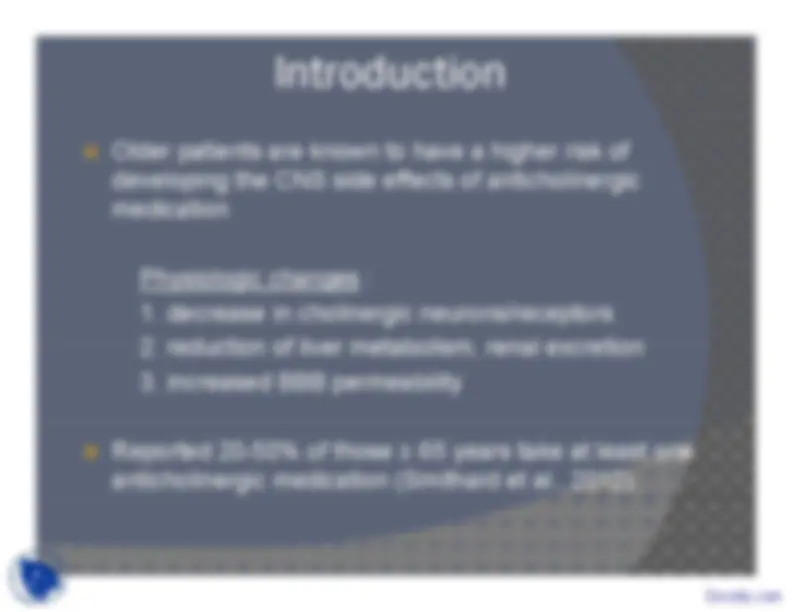
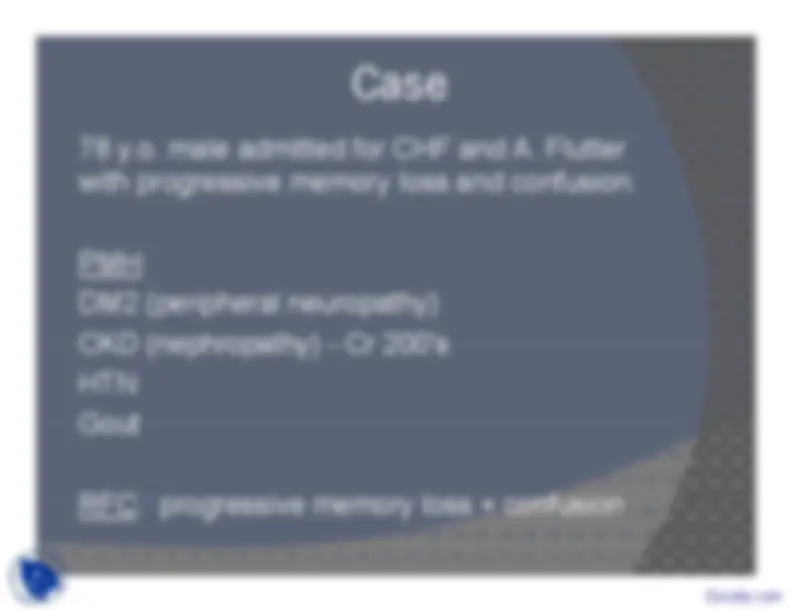
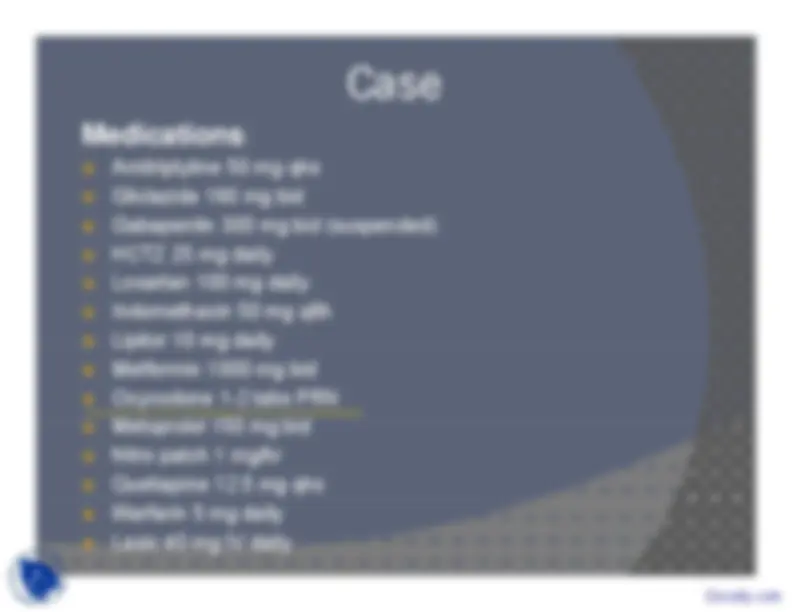
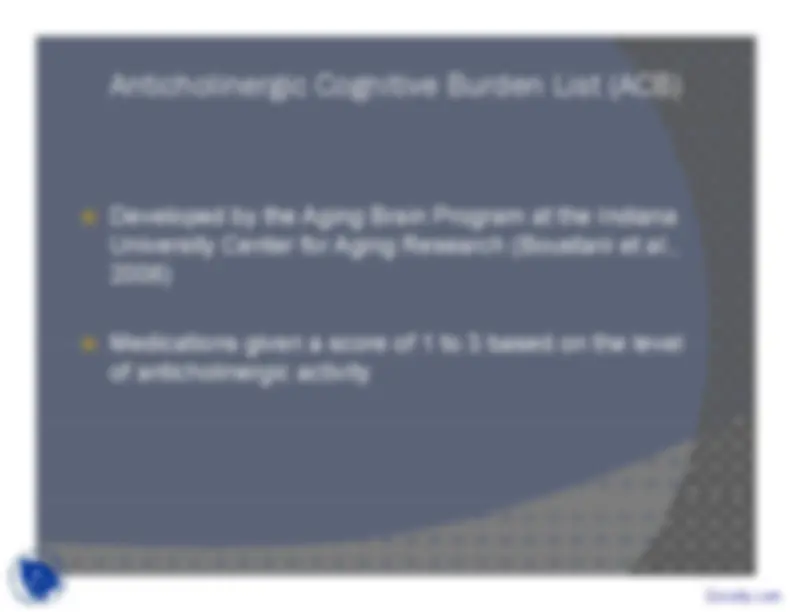
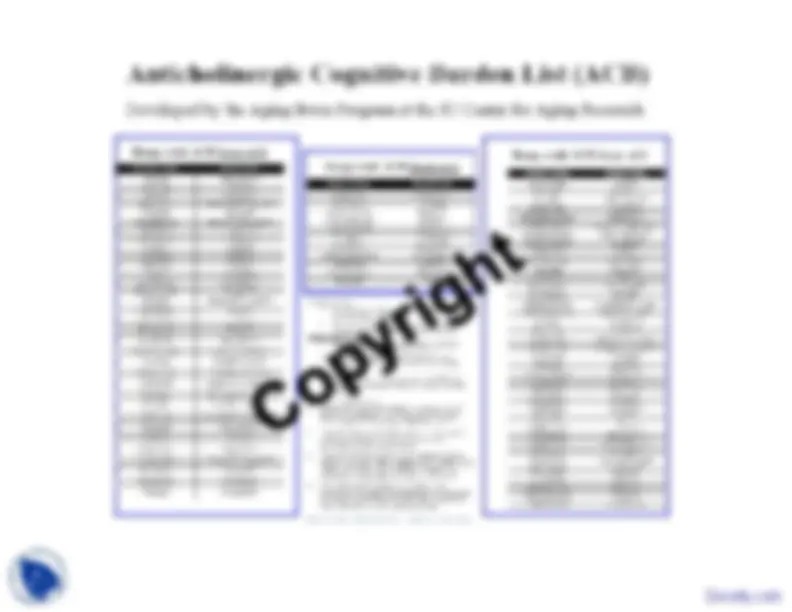
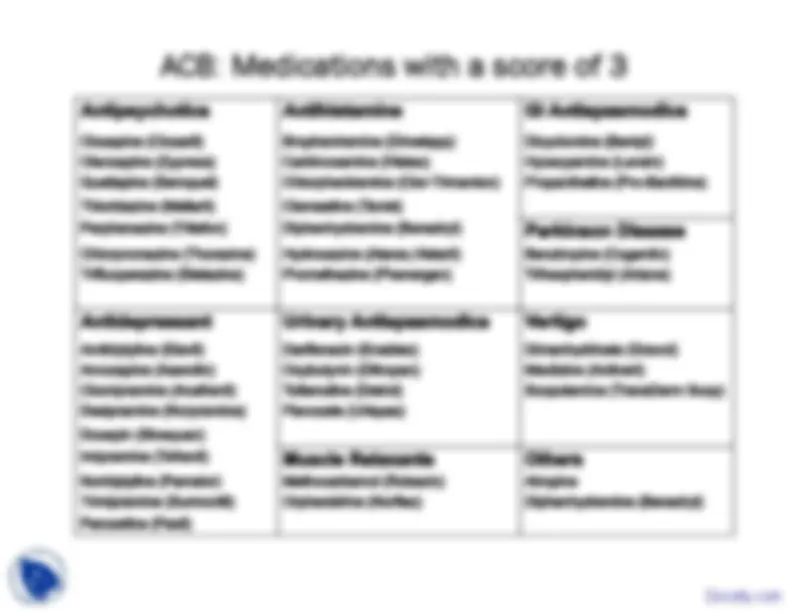
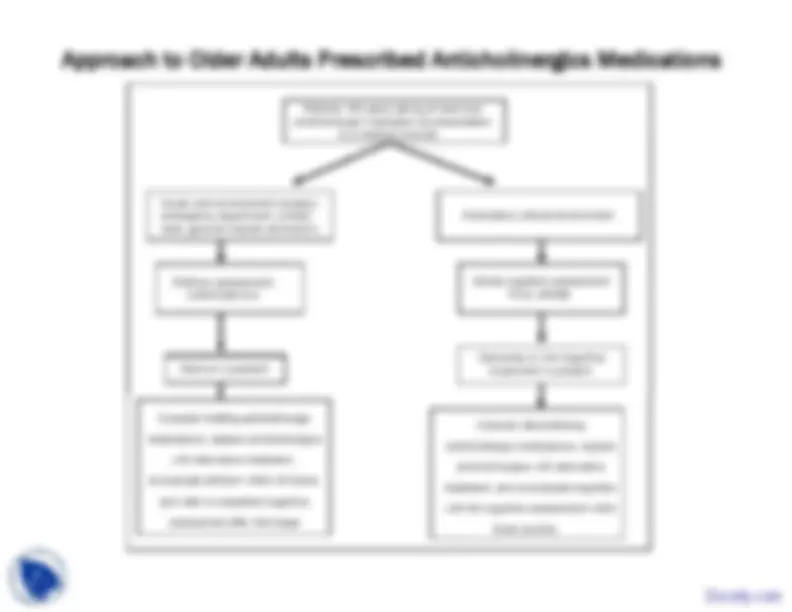
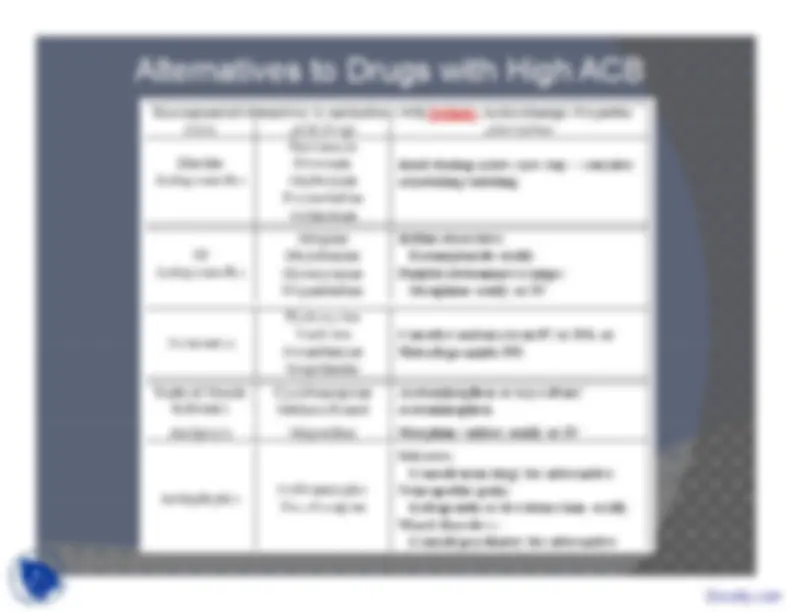
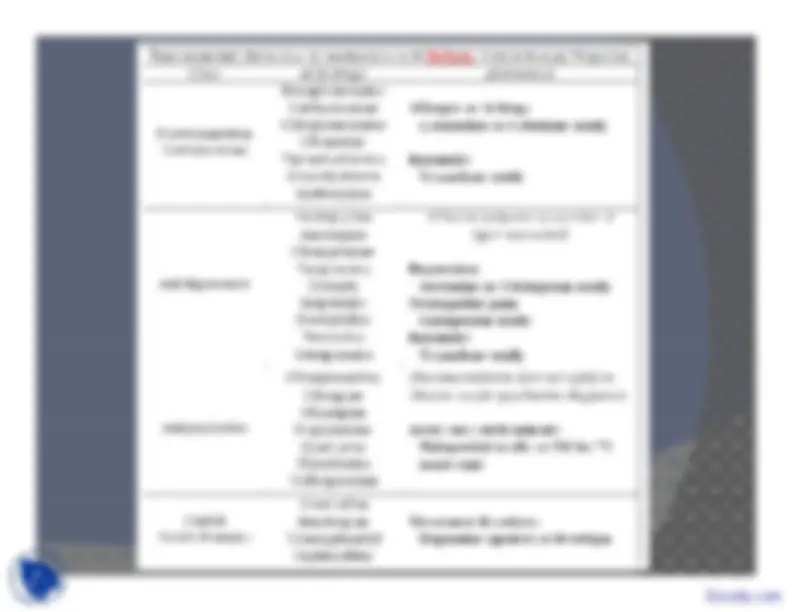
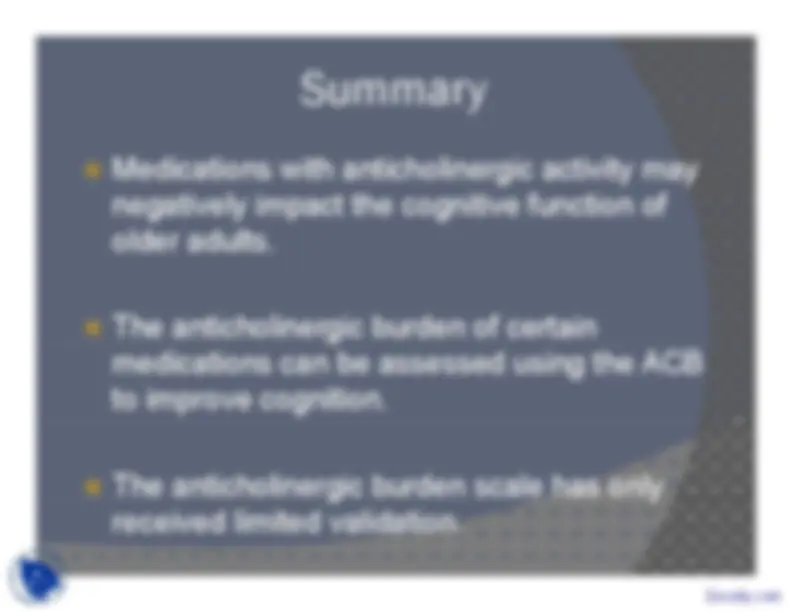


Study with the several resources on Docsity

Earn points by helping other students or get them with a premium plan


Prepare for your exams
Study with the several resources on Docsity

Earn points to download
Earn points by helping other students or get them with a premium plan
Community
Ask the community for help and clear up your study doubts
Discover the best universities in your country according to Docsity users
Free resources
Download our free guides on studying techniques, anxiety management strategies, and thesis advice from Docsity tutors
The negative impact of anticholinergic medications on cognitive function in older adults. It includes literature reviews, a case study, and the anticholinergic cognitive burden list (acb) to identify anticholinergic medications and calculate anticholinergic burden. The document also provides a clinical approach for managing elderly patients on anticholinergic medications.
Typology: Slides
1 / 18

This page cannot be seen from the preview
Don't miss anything!











Many medications with anticholinergic activity are an integralpart of treating common conditions such as asthma, urinary incontinence, pain, HF and psychiatric conditions.
i
h
l
id
ff
t
f
ti h li
i
d
th
eripheral side effects
of anticholinergics (e.g. dry mouth
and constipation) are readily recognized
CNS effects
e.g. attention deficits and hallucinations) may (
g
y
not be easily associated as side effects of anticholinergics.
Clinicians may fail to associate cognitive dysfunction inelderly people with anticholinergic agents and underestimateanticholinergic toxicity.anticholinergic toxicity.
:
Amitriptyline 50 mg qhsGli l
id
160
bid
Gli
clazide 160 mg bid
Gabapentin 300 mg bid (suspended)
HCTZ 25 mg daily
Losartan 100 mg daily
Indomethacin 50 mg q8h
Lipitor 10 mg daily
Lipitor 10 mg daily
Metformin 1000 mg bid
Oxycodone 1-2 tabs PRNM t
l l 150
bid
M
etoprolol 150 mg bid
Nitro patch 1 mg/hr
Quetiapine 12.5 mg qhs
Warfarin 5 mg daily
Lasix 40 mg IV daily
The effect of anticholinergic medications
on cognition
Study
Design
Effect of anticholinergic
di
ti
medication
Campbell et al., 2009(Clin. Interv. In Aging)
Systematic review27 studiesS
ti h l
I
i
t
Serum antichol. assay
(delirium, cog. Impairment ordementia)
Campbell et al, 2010(Neurology)
6 yr longitudinal study1652 African American
(Neurology)
1652 African American> 70 y.o.
with definite anticholinergics
Fox et al, 2011(JAGS)
2 yr longitudinal study13004 pts, 5 centres
Increased cumulative risk of cog.Impairment and mortality
(JAGS)
13004 pts, 5 centres ≥
65 y.o.
Impairment and mortality
Campbell et al, 2011(JAGS)
Observational cohortstudy
147 pts
≥
65 y.o.
Anticholinergic Cognitive Burden List (ACB)
Developed by the Aging Brain Program at the IndianaUniversity Center for Aging Research (Boustani et al.,2008)2008)
Medications given a score of 1 to 3 based on the level
Medications given a score of 1 to 3 based on the levelof anticholinergic activity
Approach to Older Adults Prescribed Anticholinergics Medications
Alternatives to Drugs with High ACB
:
Amitriptyline 50 mg qhs
3
Gliclazide 160 mg bid
Gabapentin 300 mg bid (suspended)
HCTZ 25 mg daily
HCTZ 25 mg daily
Losartan 100 mg daily
Indomethacin 50 mg q8h
Li it
10
d il
Lipitor 10 mg daily
Metformin 1000 mg bid
Metoprolol 150 mg bid
1
Nitro patch 1 mg/hr
Quetiapine 12.5 mg qhs
3
Warfarin 5 mg daily
1
Warfarin 5 mg daily
1
Lasix 40 mg IV daily
1
Oxycodone 1-2 tabs PRN
Management for delirium and ACBManagement for delirium and ACB
1
D/C Quetiapine
1
. D/C Quetiapine 2. Taper down amitriptyline
50 mg to 25 mg x 1 wk then to 10 mg50 mg to 25 mg x 1 wk, then to 10 mgx 1 wk and d/c.
3
I
d
b
ti
f
i
t
l
f hi
h
it l
t
the course of his hospital stay.